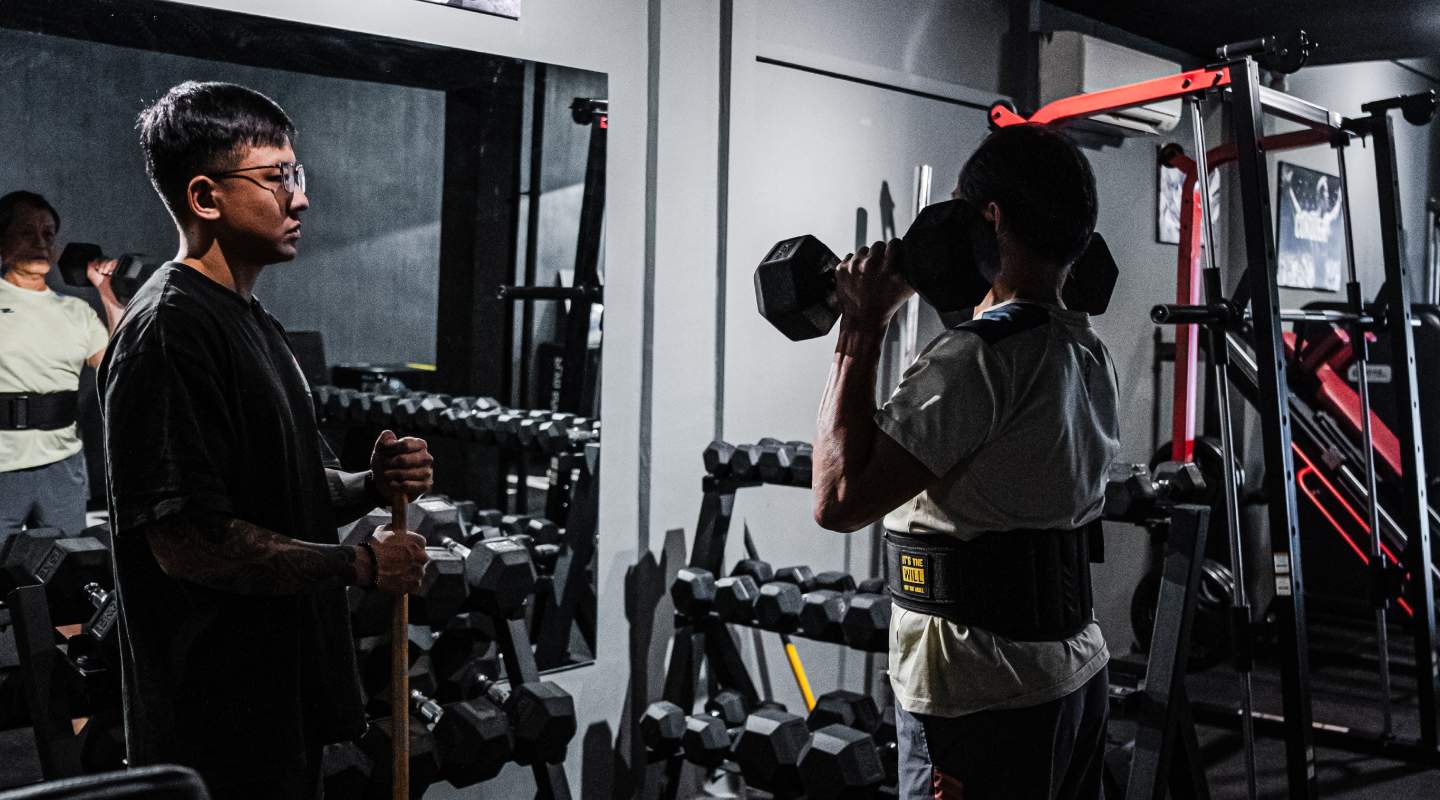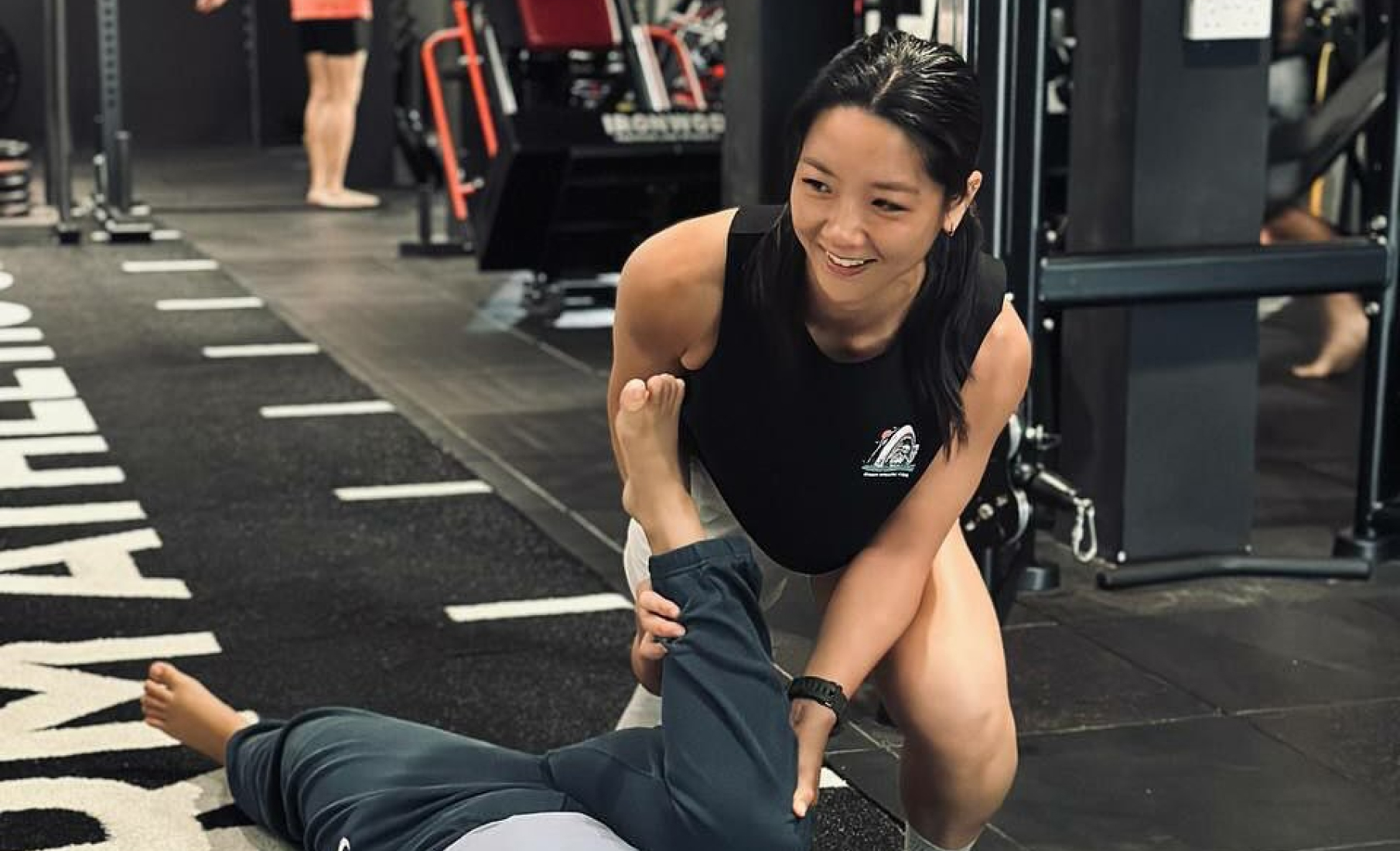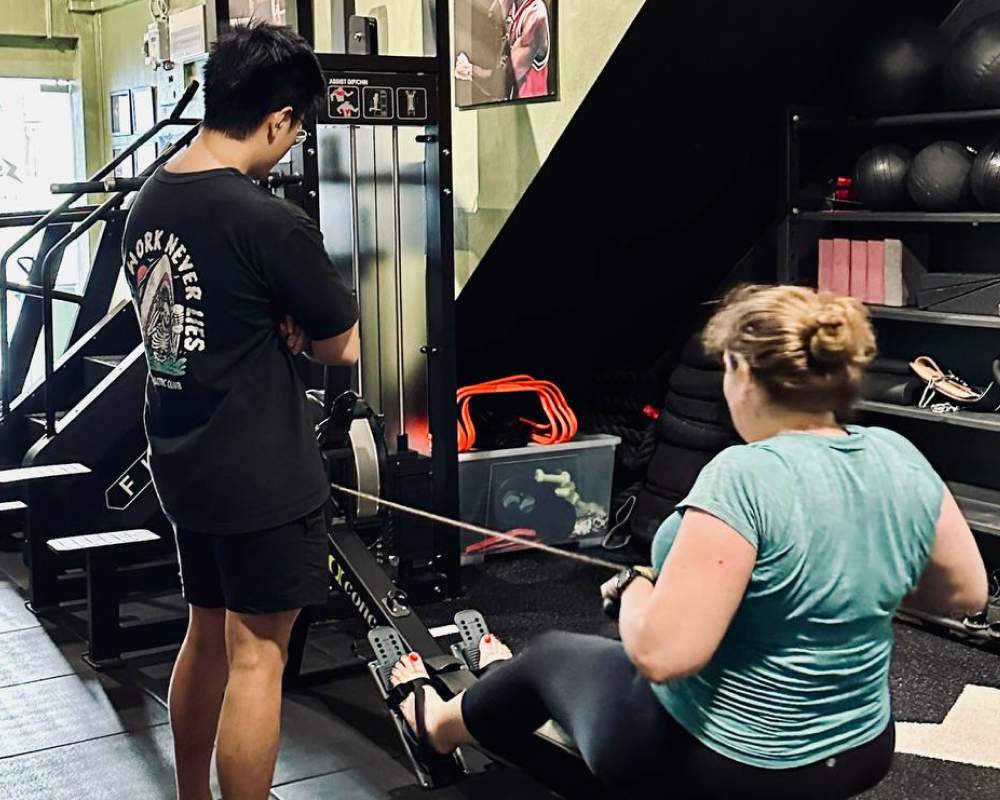Functional training plays a crucial role in supporting women through the significant physical changes that occur during and after pregnancy. Functional training for pre and postnatal females is specifically designed to enhance the body’s ability to perform everyday activities efficiently and safely.
But first, what is Functional Training?
While traditional training might focus on improving appearance or achieving performance goals, functional training is about practical fitness. It is tailored to build strength and capability for daily tasks. Functional training, simply put, is targeted to the subject’s needs. It focuses on improving overall body functions and is designed to build strength, endurance, and mobility that are applicable to daily activities. It emphasises exercises that mimic real-life movements, aiming to make these movements easier and more efficient.
In the table below, you can see the difference between Functional and Traditional Training
| Aspect | Functional Training | Normal Training |
|---|---|---|
| Objective | Enhance ability to perform daily activities and tasks. | Improve specific fitness metrics like strength or endurance. |
| Exercises | Mimics real-life activities; focuses on multiple muscle groups simultaneously. | Often isolates specific muscles; may focus on aesthetics. |
| Customisation | Highly tailored to individual’s daily life needs and safety. | May not be specifically tailored to individual’s daily needs. |
| Relevance to Daily Life | High—directly relates to improving quality of daily living. | Variable—depends on personal fitness goals. |
| Safety and Adaptability | Designed with a focus on safety, particularly for vulnerable groups like pre and postnatal women. | Intensity and safety depend on the program and may not consider specific individual conditions. |
| Outcome Focus | Functional improvement in everyday life. | Often focused on physical appearance or specific performance goals. |
| Typical Exercises | Squats, lunges, stretches that mimic picking up, reaching, or carrying. | Machine-based exercises, heavy lifting, repetitive single-muscle workouts. |
Can pregnant women exercise?
Maintaining fitness during pregnancy is crucial, yet it’s an aspect that can easily be overlooked, especially with the many changes and concerns that come with expecting a child. Every mother’s journey is unique, but the universal thread in all these experiences is the profound benefit that appropriate exercise brings, not just to the mother, but also to the developing baby.
Regulating Body and Mood Discomfort
Engaging in regular, moderate exercise helps manage or prevent gestational diabetes, reduces pregnancy-related discomforts like back pain and fatigue, and can improve sleep. Exercise also plays a critical role in mood regulation, thanks to the endorphins released during physical activity, which can be particularly beneficial due to the hormonal fluctuations that occur during pregnancy.
Neglect of Fitness During Pregnancy
Fitness can often take a back seat during pregnancy for several reasons:
- Misconceptions and Fear: There’s a common misconception that exercise might harm the baby. This fear can discourage expectant mothers from engaging in any physical activity.
- Physical Discomfort: As the pregnancy progresses, physical changes and discomfort can make the prospect of exercising less appealing.
- Lack of Information: Without adequate guidance from health professionals about safe exercises during pregnancy, many women might not know how to incorporate fitness safely into their routine.
At what month can a pregnant woman start exercising?
Let’s address the elephant in the room. If you are reading this article you are likely either on two scales, either figuring out if you can exercise or how to exercise.
Generally speaking, if a woman was active before pregnancy, she can safely continue exercising at a similar level, with modifications as needed for comfort and safety as the pregnancy progresses. For those who were not previously active, it is usually safe to begin a gentle exercise routine after consulting with a professional.
Put it in to summarised terms, the following list aims to address your concerns.
- Pre-pregnancy Fitness Level:
- Previously Active: Women who regularly exercised before pregnancy can often continue their routines with some adjustments for safety and comfort. The key is to listen to the body and adjust the intensity and type of exercise as needed.
- Previously Inactive: Women who did not exercise before becoming pregnant should discuss starting a gentle exercise routine with a professional trainer. The second trimester is often a good time to start because nausea and fatigue from the first trimester may lessen.
- First Trimester Considerations:
- Starting exercise during the first trimester should be done cautiously. For beginners, activities like walking or gentle prenatal yoga are recommended to minimise the risk of injury and accommodate the body’s increasing demands.
- The focus should be on establishing a habit of regular activity rather than on intensity or duration.
- Second and Third Trimesters:
- As the pregnancy progresses, the type of exercise may need to be adjusted. For instance, activities that involve lying flat on the back or potential contact sports should be avoided.
- Exercises should focus on strengthening the muscles needed for labor and delivery, like the pelvic floor, and maintaining overall fitness without undue strain.
- Guidance and Monitoring:
- Regardless of when a pregnant woman starts exercising, it should always be under the guidance of a professional to ensure the safety of both mother and baby.
- Regular check-ins with a healthcare provider can help adjust the exercise routine to accommodate the changes in the body and any pregnancy-related conditions.
Does working out while pregnant make a difference?
The contrast between maintaining an active lifestyle and a more sedentary approach during pregnancy is significant:
- With Regular Exercise: Women who engage in suitable fitness routines often report fewer instances of morning sickness and less severe pregnancy symptoms. They tend to have more energy throughout their pregnancy and can recover more quickly postpartum. Exercise helps maintain cardiovascular and muscular health, which supports the body’s ability to cope with the physical demands of pregnancy and delivery.
- Without Regular Exercise: In contrast, skipping exercise can lead to higher weight gain, increased back pain, and a higher risk for gestational diabetes and hypertension. Women may also experience a slower physical recovery after childbirth and may struggle more with losing the baby weight.
At Storm Athletic Club, we advocate for a balanced approach that includes safe, functional exercises tailored to each trimester. Our expert trainers are equipped with the knowledge to guide expectant mothers through workouts that are not only safe but effective in boosting overall health and preparing the body for childbirth.
Discover Pre and Post Natal Functional Training with Coach Nicole
Whether you’re anticipating the arrival of a new family member or navigating the challenges of postnatal recovery, your fitness journey deserves the guidance of an expert who understands the unique needs of mothers. At Storm Athletic Club, we recognise the importance of specialised training programs that cater specifically to pre and postnatal women.
Meet Coach Nicole
With a rich background in competitive athletics and a deep commitment to empowering others through fitness, Nicole brings a wealth of knowledge and passion to her training sessions. Certified in functional fitness for pre and postnatal females, Nicole designs workout programs that are not only safe but highly effective, tailored to support you at every stage of motherhood.
From enhancing your physical strength and mobility to boosting your mental well-being, Nicole’s training sessions focus on the exercises that matter most to you. Nicole’s personalised approach ensures that your fitness goals are met with the utmost care and precision.
Ready to start your tailored fitness journey? Contact us today to schedule a trial session with Nicole. Experience first-hand how targeted functional training can make a significant difference in your pre and postnatal health and well-being.


